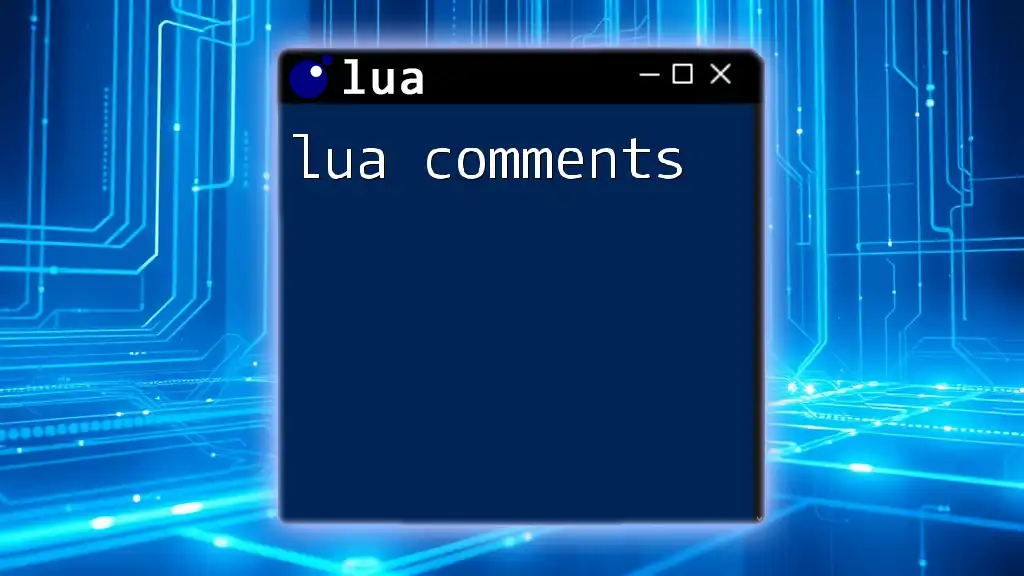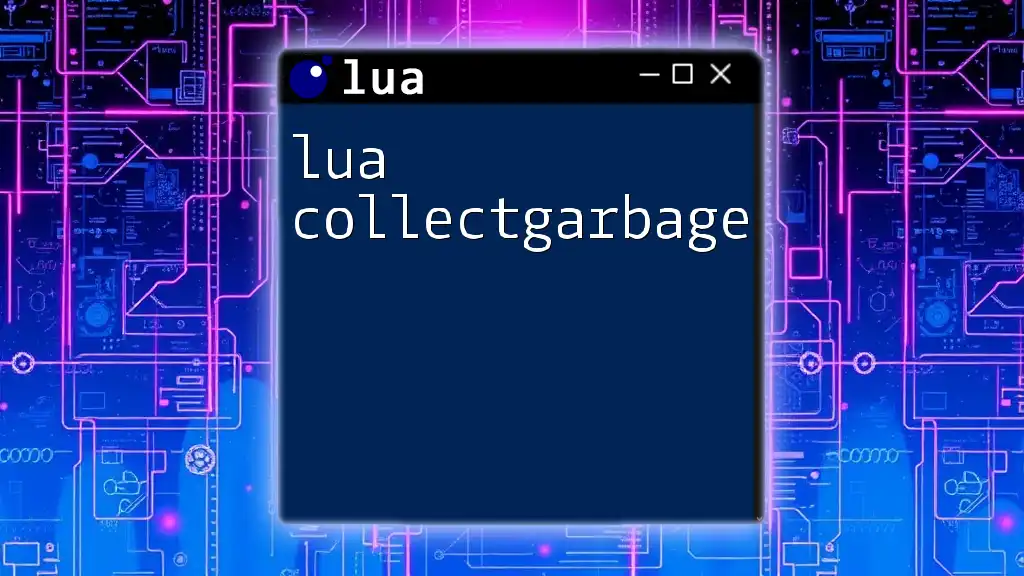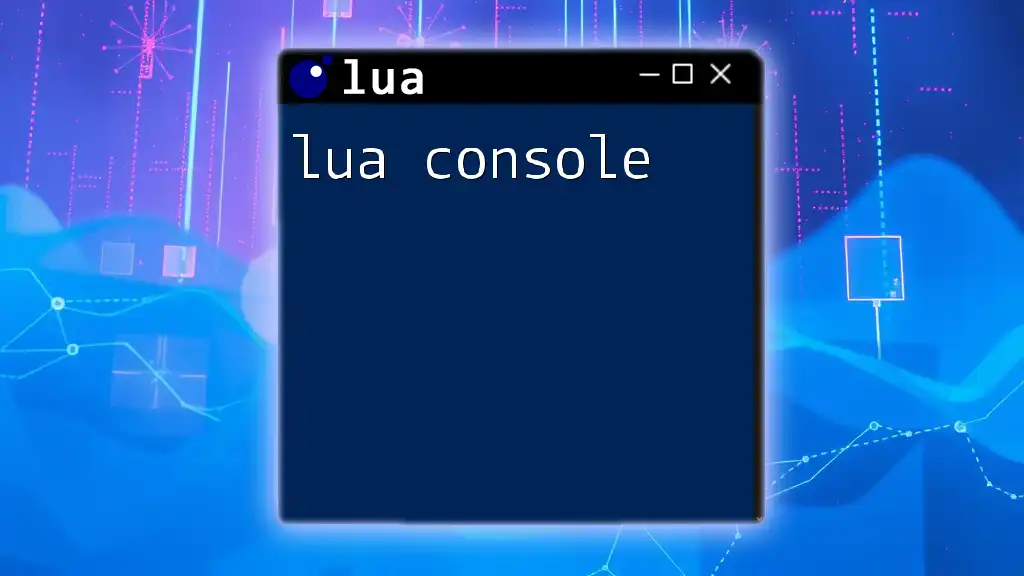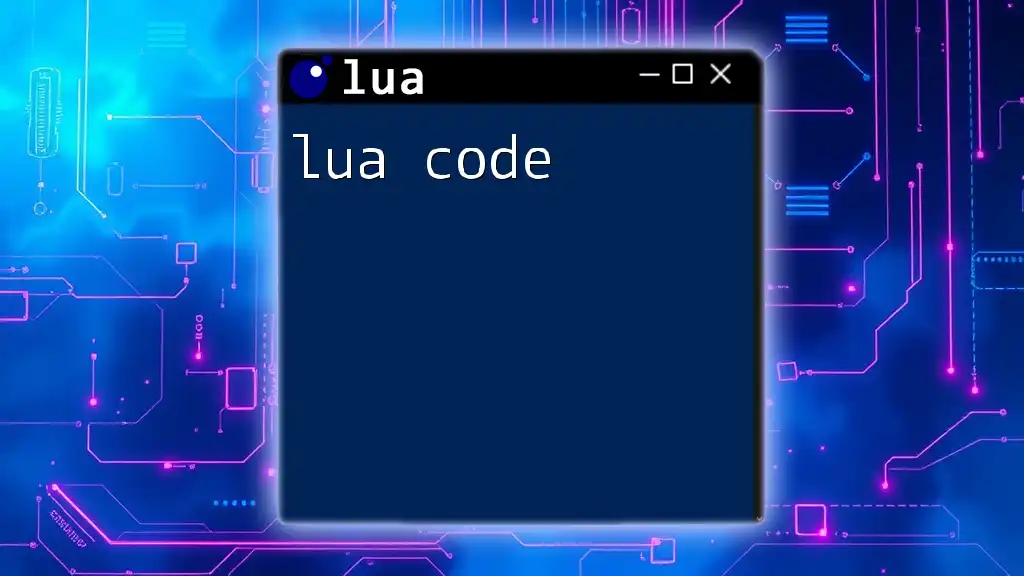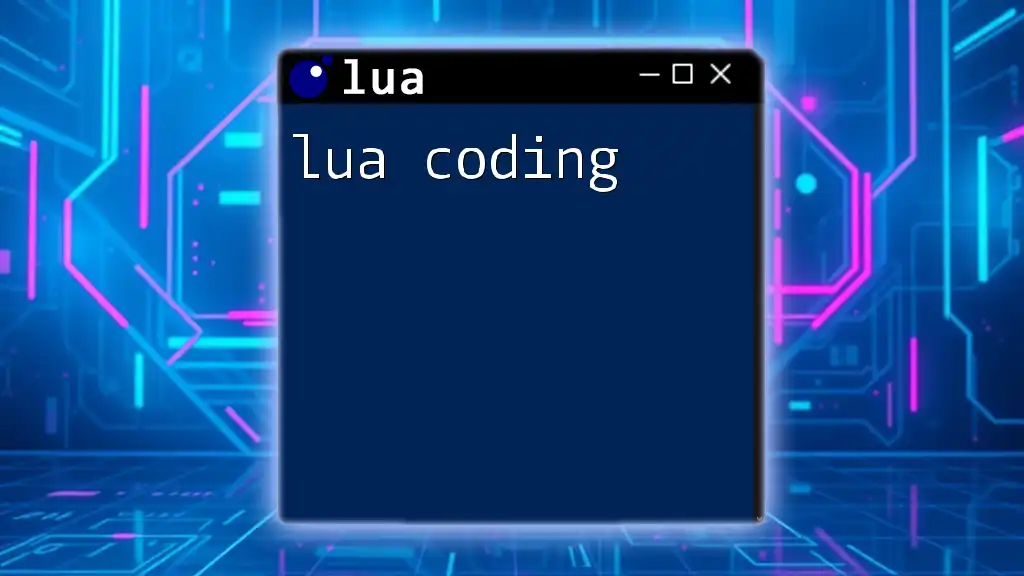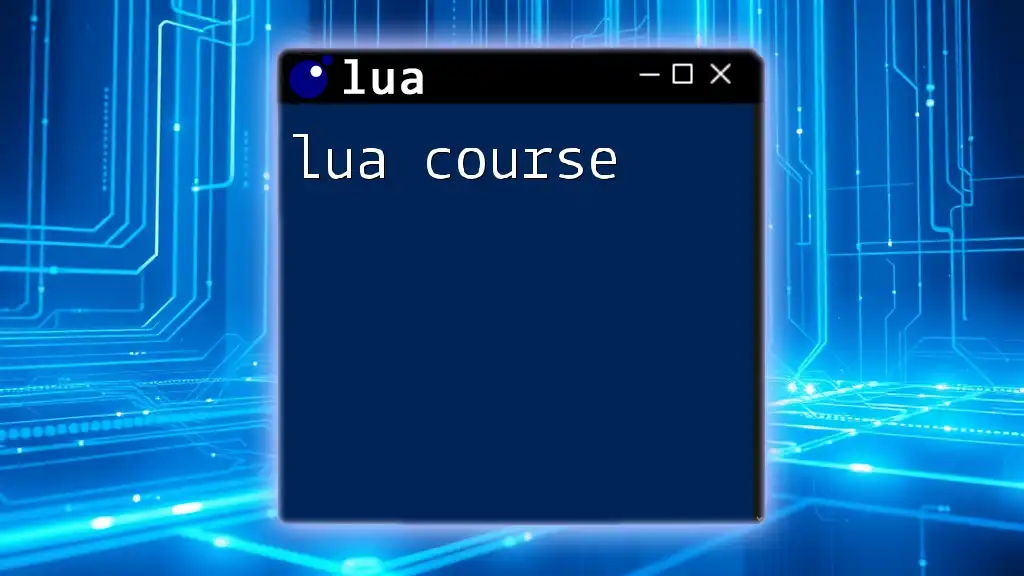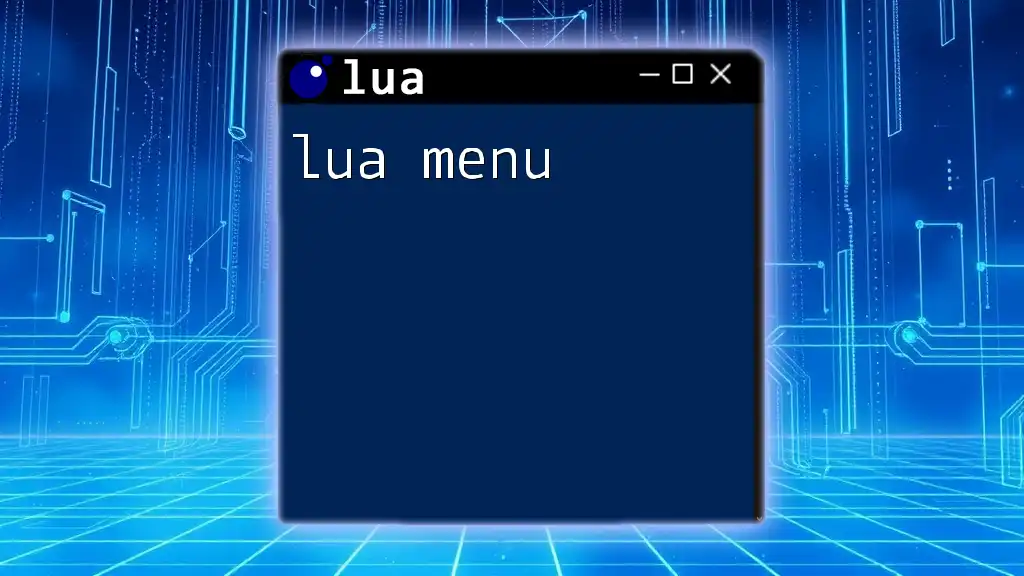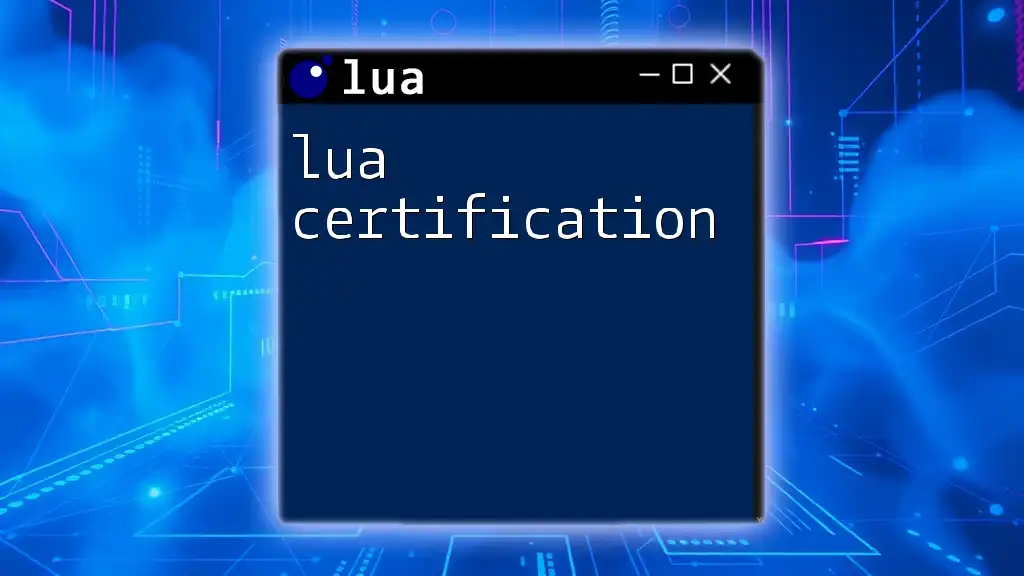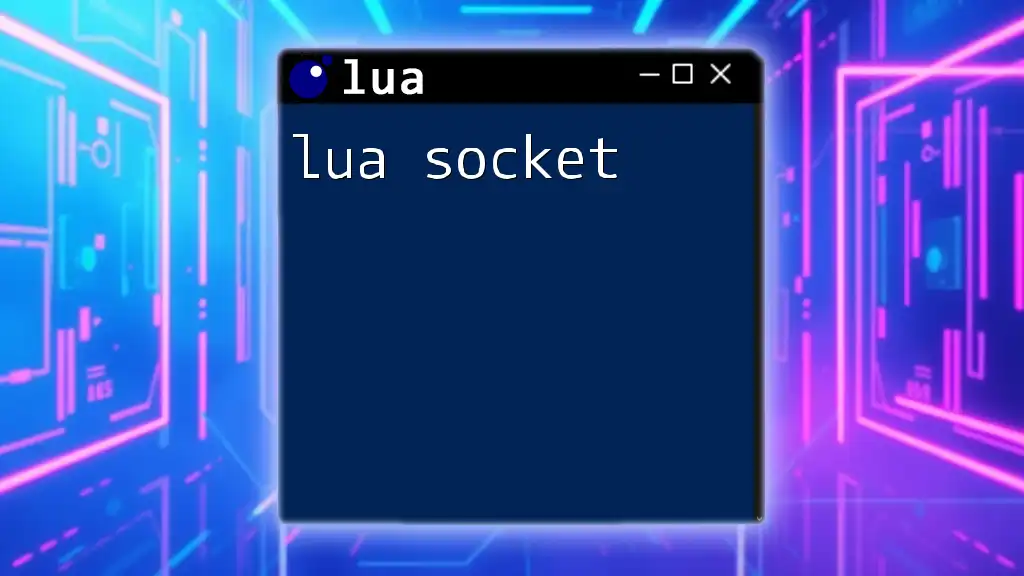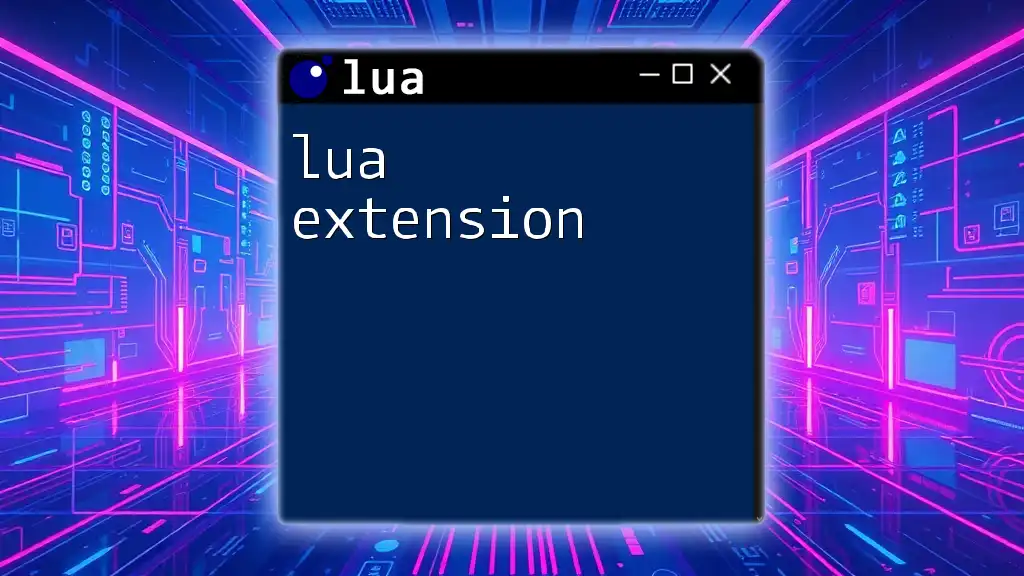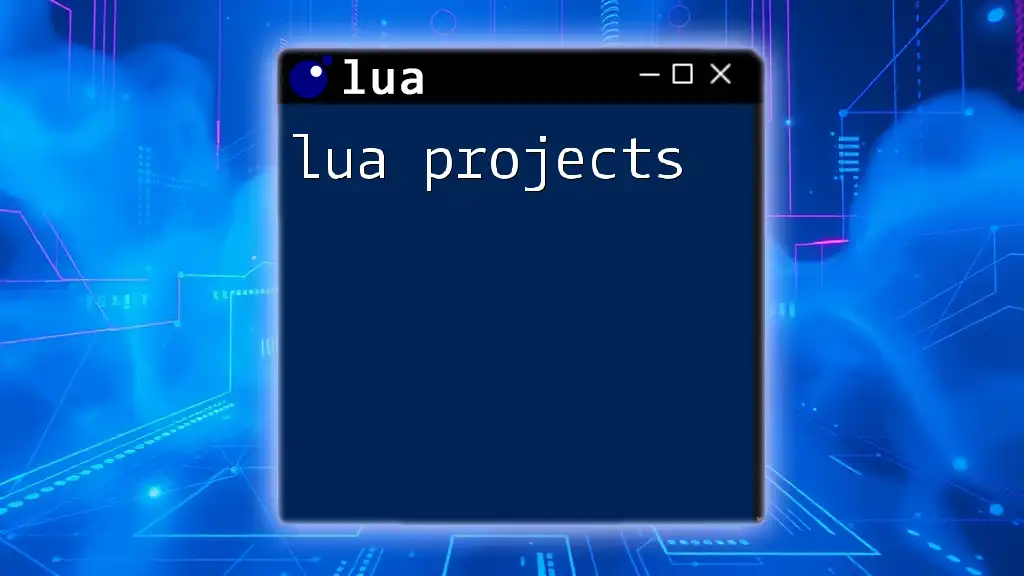In Lua, comments are used to annotate your code, making it more understandable for others (or yourself later) by providing explanations without affecting the execution of the program.
Here's a code snippet demonstrating both single-line and multi-line comments in Lua:
-- This is a single-line comment
--[[
This is a multi-line comment
that can span multiple lines
]]
print("Hello, World!") -- This prints "Hello, World!" to the console
Understanding Comments in Lua
What are Comments?
In programming, comments are annotations or explanations added to the source code to clarify its purpose for anyone reading it, including the original programmer. Lua comments serve as notes that the interpreter ignores during execution, allowing developers to explain their logic and decisions without affecting the code functionality. They can significantly enhance the readability and maintainability of code.
Why Use Comments in Lua?
Using comments in your Lua code can lead to several advantages:
- Increased Readability: Comments can make your code more understandable for others (or yourself at a later date).
- Documentation: They serve as documentation of your code's functions, parameters, and logic.
- Debugging Aid: Comments can help identify the purpose of your code blocks when troubleshooting or debugging.
By providing clarity, comments become invaluable in collaborative and large projects.
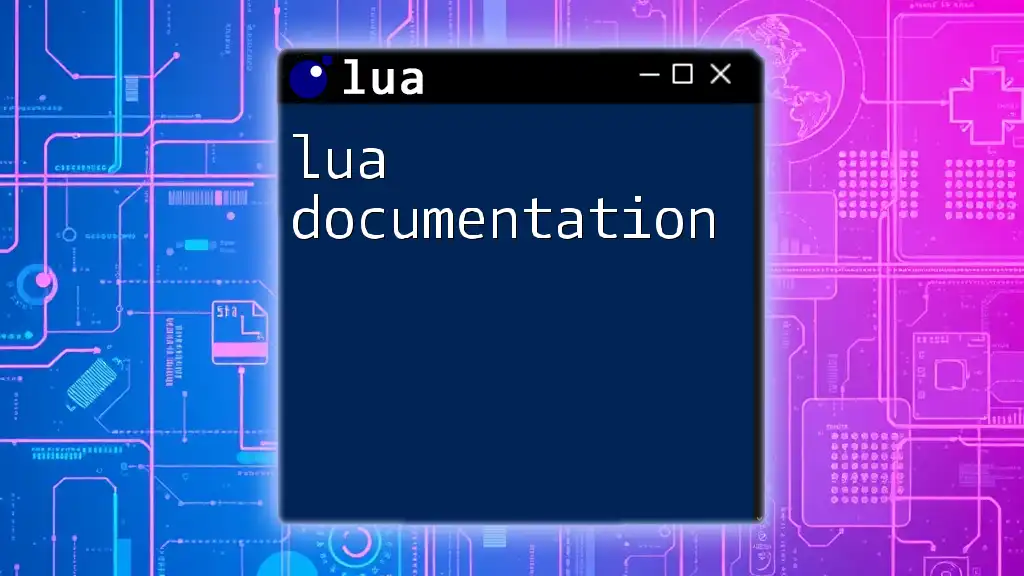
How to Comment in Lua
Single-Line Comments
The simplest form of commenting in Lua is through single-line comments, designated by two hyphens (`--`). Anything following the `--` on that line will be ignored by the parser.
Example:
-- This is a single-line comment
print("Hello, World!") -- This prints a greeting
In this example, the comment explains what the `print` function does without interfering with the code execution.
Multi-Line Comments
Introduction to Multi-Line Comments
For longer explanations or when you want to comment out multiple lines of code, you can use multi-line comments. This syntax begins with `--[[` and ends with `--]]`.
Lua Multi-Line Comment Example
Example:
--[[
This is a multi-line comment.
It can span multiple lines
without interrupting the code flow.
--]]
print("This code is not commented out.")
In the above code, the multi-line comment provides space for extended explanations or documentation that does not impact the actual code.
Block Comments in Lua
What is a Lua Comment Block?
A block comment in Lua refers to a specific type of multi-line comment that can be particularly useful for describing larger sections of code or entire functions. It encapsulates larger blocks of text that don't require inline explanations.
Example of a Lua Block Comment
Example:
--[[
The following function calculates the sum of two numbers.
It takes two parameters and returns their sum.
--]]
function add(a, b)
return a + b
end
Here, the block comment serves as a clear guide to anyone reading the code, explaining the purpose of the function that follows.
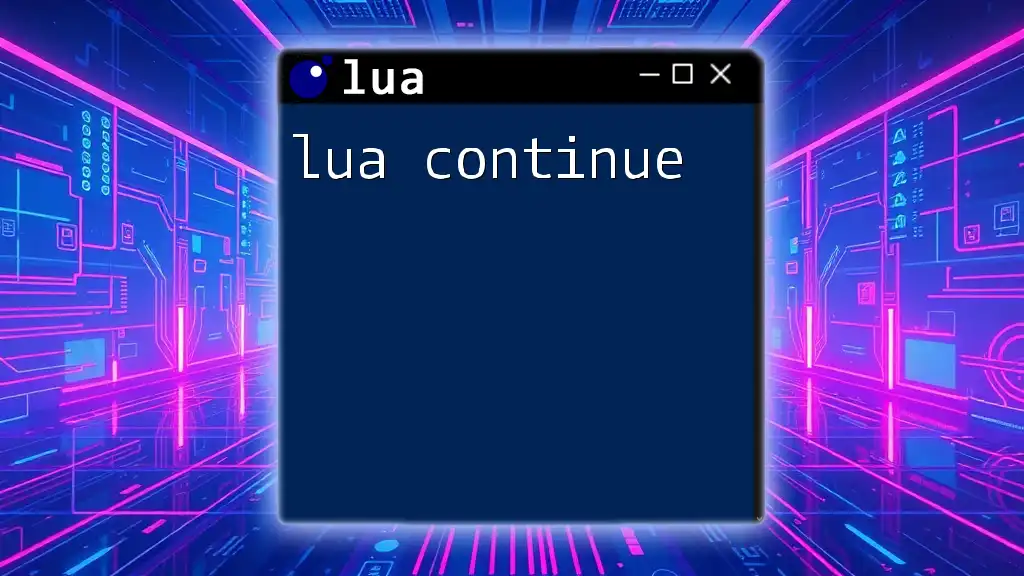
Best Practices for Commenting in Lua
Writing Clear and Concise Comments
When you write comments, aim for clarity and conciseness. Your comments should provide insight into the code without overwhelming the reader. Here are some tips:
- Be specific: Avoid vague phrases. Replace "This does something" with "This function calculates the factorial of a number."
- Use simple language: Tailor your comments for your audience. Aim for clarity over jargon.
Avoiding Over-Commenting
While comments are essential, over-commenting can lead to cluttered code. If your comments become redundant or simply restate what the code already expresses, it might be best to remove them. Ask yourself if the comment adds real value.
Keeping Comments Up-to-Date
As your code evolves, so should your comments. Maintain accuracy to ensure that comments reflect the current state of the code. Outdated comments can lead to confusion and misinterpretation, undermining their purpose. Always revise comments during code updates.
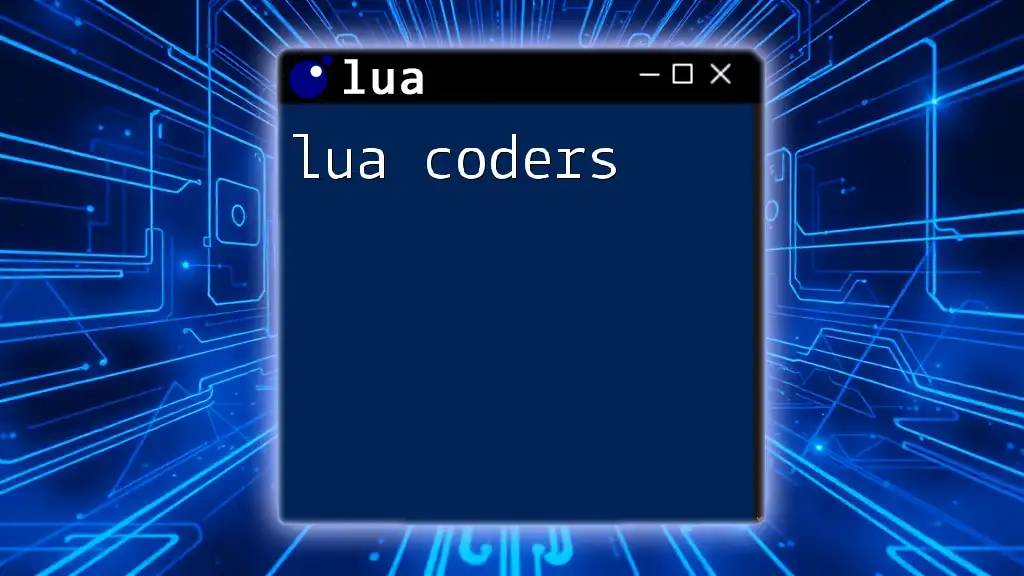
Common Mistakes in Commenting
Overusing Jargon
Using technical terms and jargon can alienate readers unfamiliar with the terminology. Simplicity is key. Instead of saying "The API throttles requests", you might say "The service limits how often you can call it".
Writing Comments That Are Outdated
Outdated comments can mislead, leaving users confused about the current functionality. Always review and update comments to stay aligned with your code.
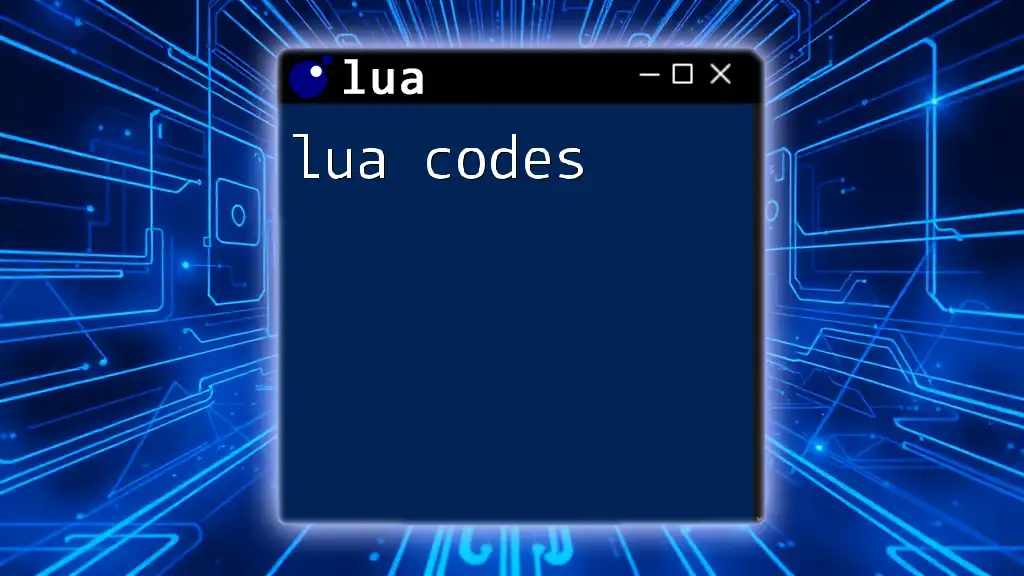
Conclusion
The Role of Comments in Code Quality
In summary, effectively used Lua comments serve as a foundation for sound coding practices. They enhance readability, documentation, and collaboration in coding projects. By embedding thoughtful, clear comments in your code, you contribute significantly to the overall quality and maintainability of your work.
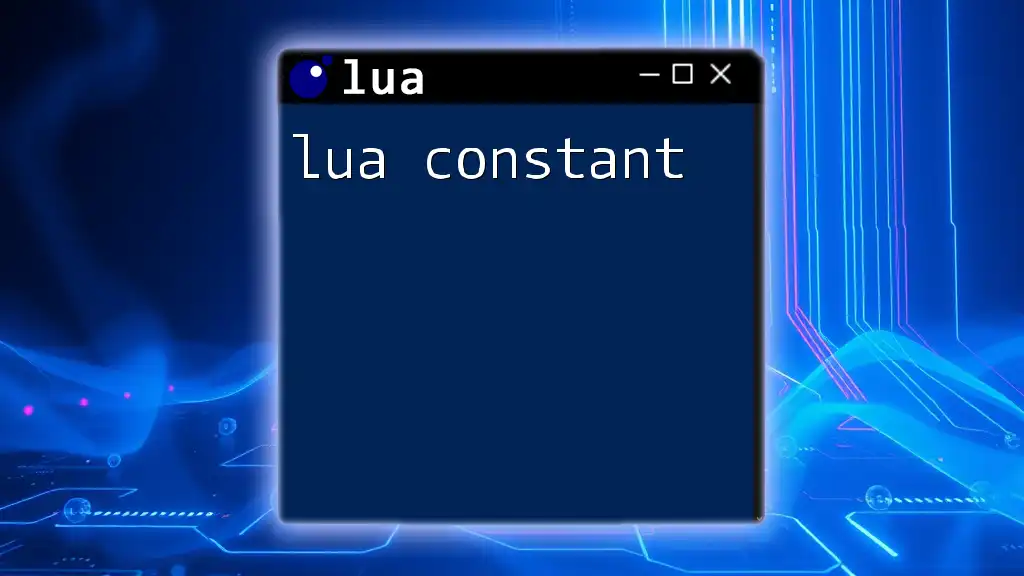
Additional Resources
Links to Lua Documentation
For further understanding and in-depth knowledge, explore the official Lua documentation and other tutorials dedicated to programming with Lua.
Community and Support
Engaging with Lua forums and communities can provide additional insights and help refine your commenting style. Sharing experiences and learning from fellow developers is an invaluable resource in mastering any language, including Lua.

